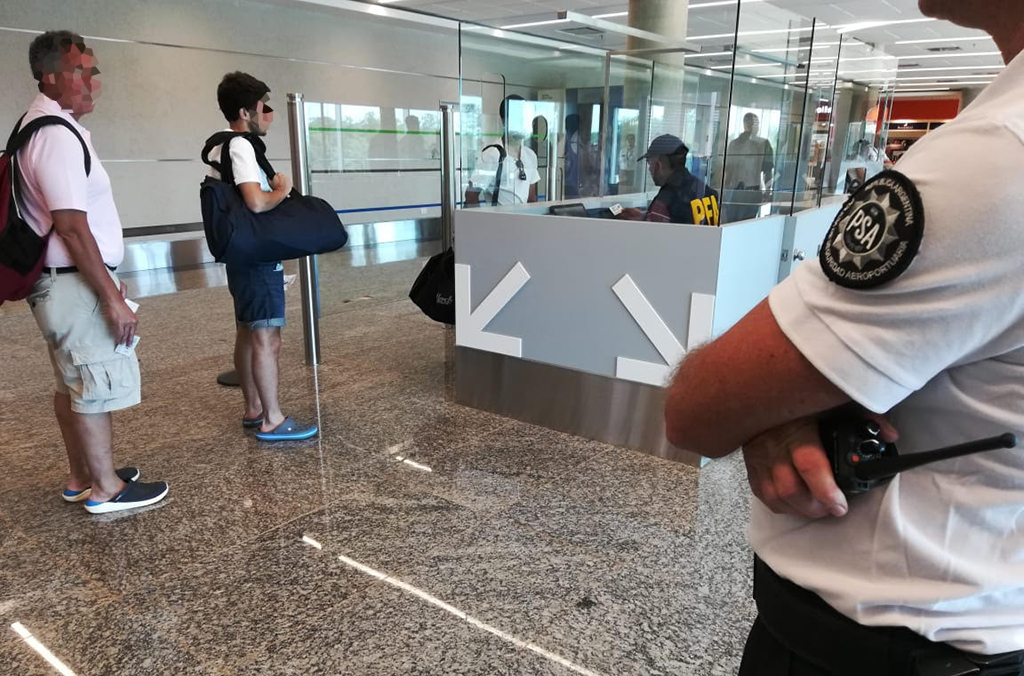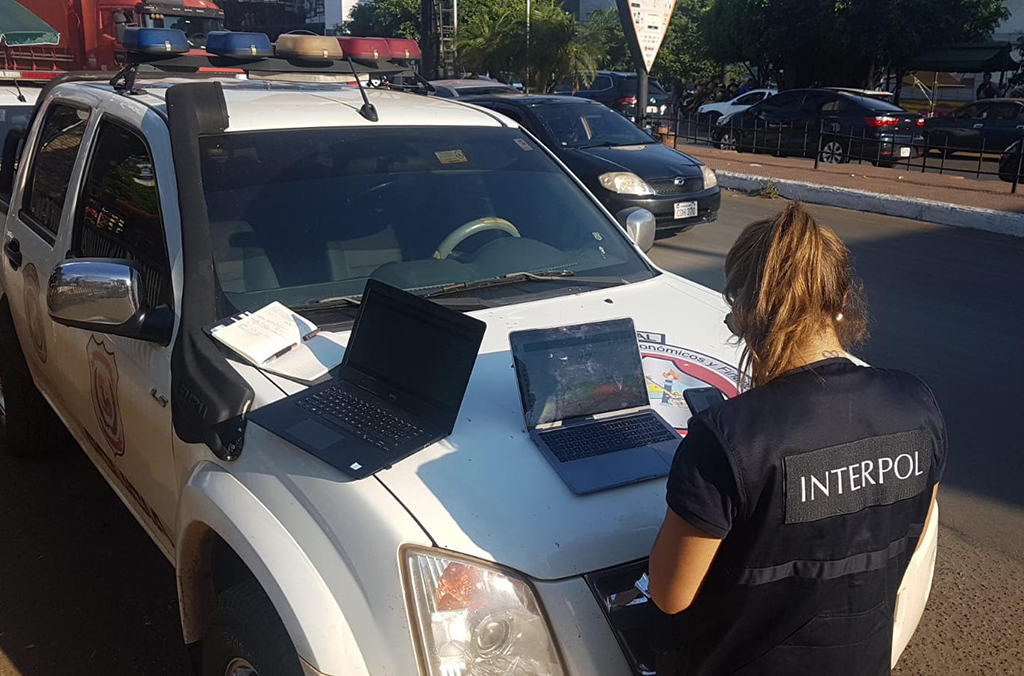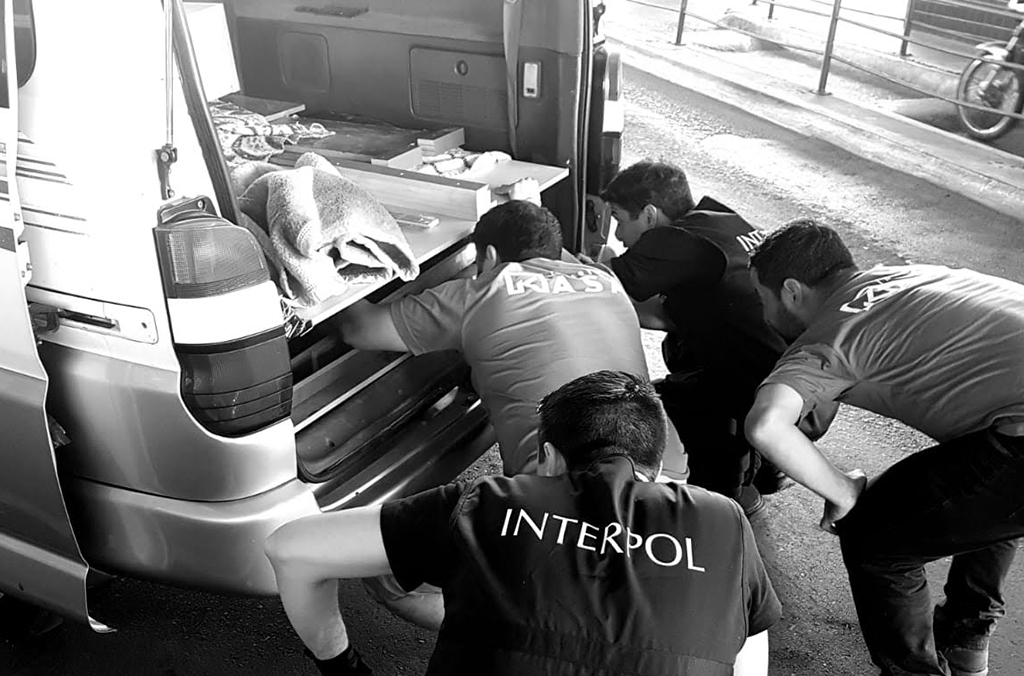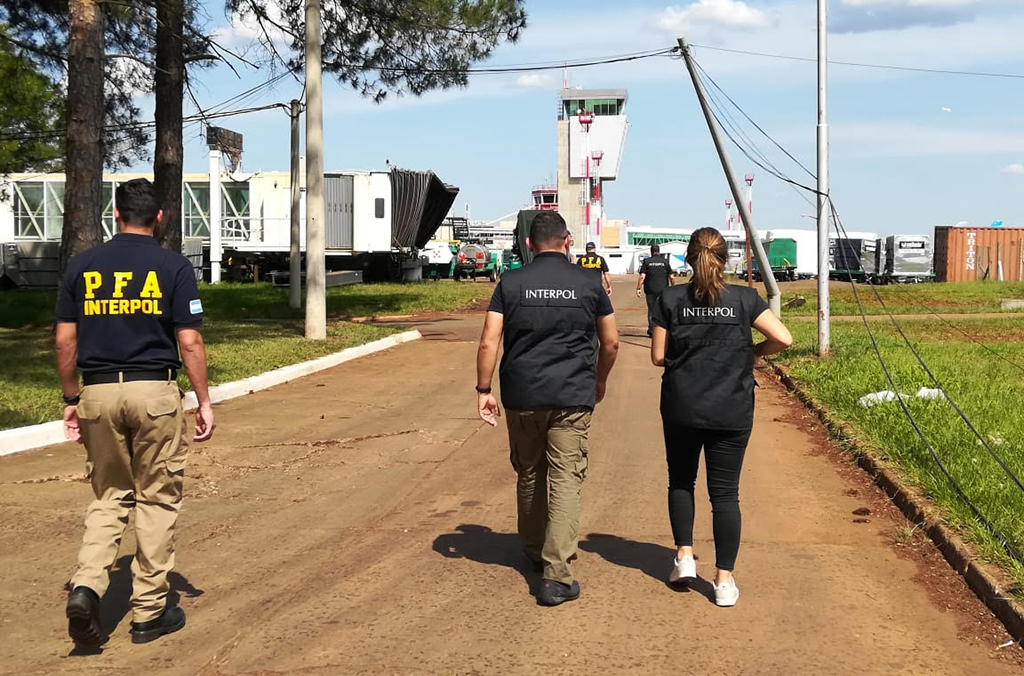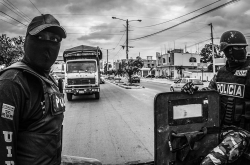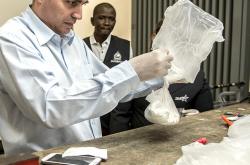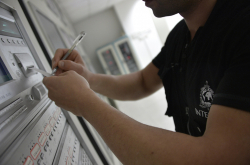Puerto Iguazú – An INTERPOL-coordinated operation saw more than 600 police officers from Argentina, Brazil and Paraguay mobilized in the Tri-Border region.
Codenamed Operation Triple Border (18-22 November), the coordinated action culminated in the arrest of 24 individuals, including one internationally wanted person subject to a Red Notice for crimes against children.
Drugs, vehicles, firearms and other illicit products were seized during the operation, which has helped establish a reinforced INTERPOL presence in the area.
“The Tri-Border area and the challenges it faces are at the core of INTERPOL’s mission. As criminals exploit the interconnected economies of Argentina, Brazil and Paraguay, only greater coordination between the three countries’ police forces will bring about a step change in the region’s fight against organized crime,” said José de Gracia, Assistant Director of INTERPOL’s Criminal Networks Unit.
“Operation Triple Border was an important step towards instilling this coordination and building capacity on the ground,” added Mr De Gracia.
Drugs, firearms, stolen cars and money laundering
With a population of more than half a million spread across the border cities of Puerto Iguazú (Argentina), Foz do Iguaçu (Brazil) and Ciudad del Este (Paraguay), the Tri-Border region has often posed considerable challenges to local and international law enforcement.
Given its geographical layout – with the Paraná and Iguazú rivers that separate the states creating many entry points – and the region’s strong economic and social linkages, the Tri-Border area is conducive to a wide range of illegal activities, notably the purchase and sale of drugs, firearms, counterfeit pharmaceuticals, stolen cars and money laundering.
Studies have estimated the size of illicit economies in the Tri-Border area to be in the tens of billions of US dollars each year.
Operation Triple Border helps local law enforcement in Argentina, Brazil and Paraguay to address organized crime in the region by making full use of the INTERPOL’s policing capabilities. This includes checking leads against INTERPOL’s global databases, such as Stolen Motor Vehicles and iARMS, which allows connections to be made between criminal activities that take place in each of the three countries.
In the wake of November’s operation, INTERPOL has established a permanent presence in the Tri-Border area with designated INTERPOL offices in each of the three countries.
Transforming external funding into operational results
Operation Triple Border was organised under two banners: INTERPOL’s Project Fortaleza and Project CRIMJUST, which is funded by the European Union’s Cocaine Route Programme.
Whilst CRIMJUST seeks to strengthen criminal investigation and criminal justice cooperation along the cocaine route, Fortaleza focuses on criminal structures that originate in Latin America but have a global impact.
Projects Fortaleza and CRIMJUST strengthen communication between INTERPOL’s General Secretariat, member countries and officers in the field, which leads to more efficient exchange of operational and actionable police intelligence.
In November 2019, INTERPOL and the Argentine Federal Police organized the sixth Project Fortaleza Working Group Meeting, where police representatives from 19 countries met to share information and best practices in fighting organized crime in Latin America, with recommendations crafted to guide future collaboration.
The meeting was funded by INTERPOL’s five-year AMEAP project (Africa-Middle East-Asia Pacific) which coordinates initiatives against drug trafficking with funding by the United Arab Emirates and INTERPOL Foundation for a Safer World.




